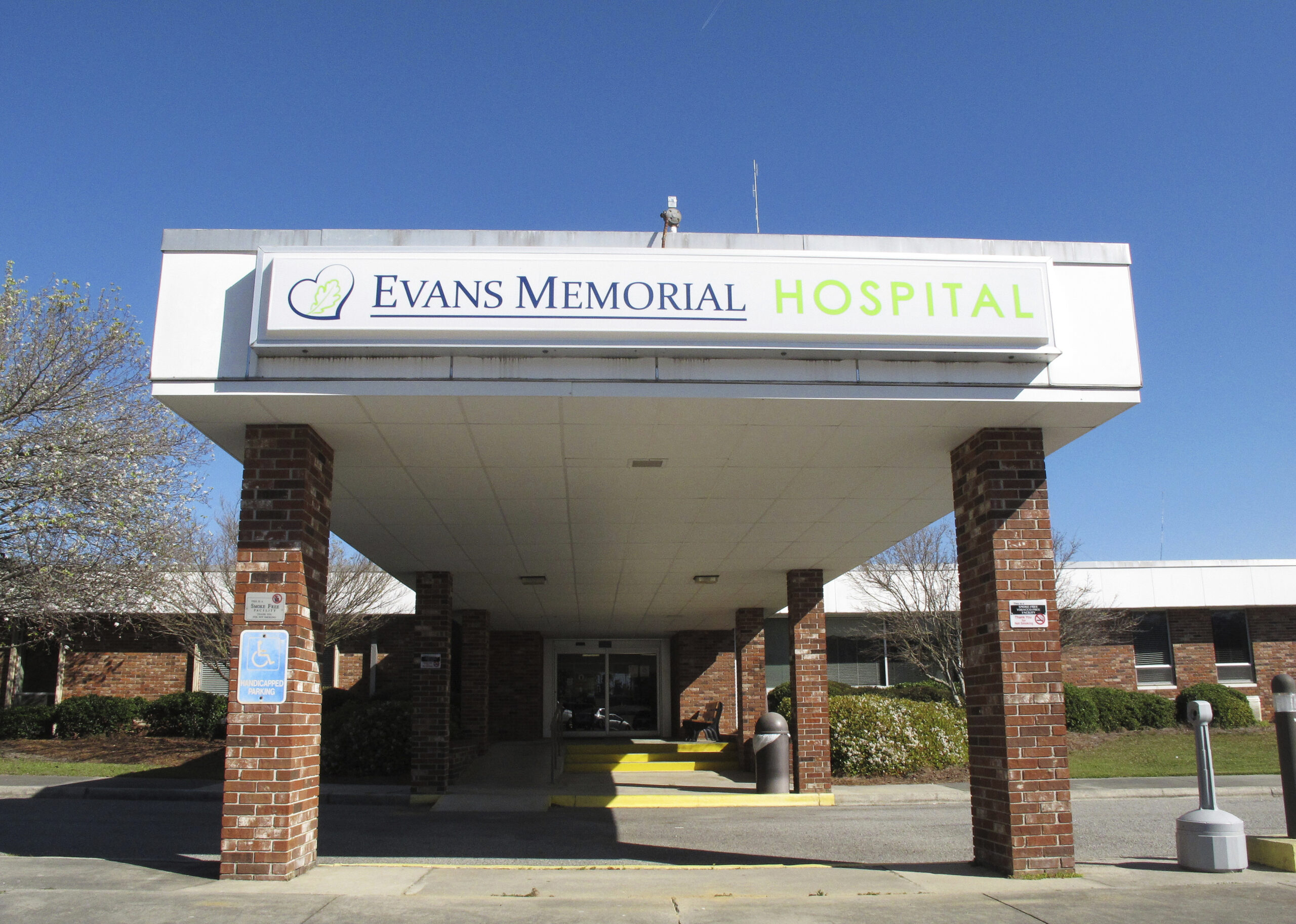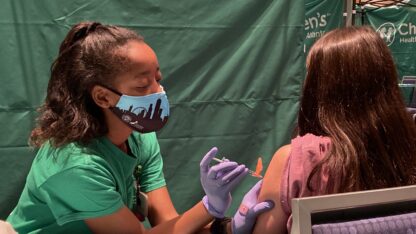This story was originally published at Georgia Health News.
Evans Memorial Hospital in southeast Georgia recently struggled to find someone to accept the transfer of a very sick COVID-19 patient.
After Evans staff called 14 hospitals, one finally agreed to take the patient.
That hospital turned out to be two states away — in Bowling Green, Ky.
The patient was flown to the Kentucky hospital, a distance of more than 500 miles.
For another patient, it took 33 phone calls to get a hospital in Central Georgia to accept the transfer, said Evans Memorial’s new CEO, Bill Lee.
Though these are extreme examples, the transfer difficulties demonstrate the impact of the recent COVID-19 spread across rural areas of Georgia, and hospitals’ challenges in meeting patients’ medical needs. Not only are COVID-19 hospitalizations statewide hovering at record levels, but facilities are scrambling to have enough nurses and other staff to work on the front lines.
Rural hospitals largely escaped the initial wave of infections early in the pandemic, said Jimmy Lewis, CEO of HomeTown Health, an association of rural hospitals in the state. ‘’Now suddenly, people are coming into rural communities and bringing it [COVID-19] with them,’’ he said.
Hospital CEOs often have enough beds, but not enough staff to handle those beds, Lewis added.
To alleviate the transfer problems, state officials are mobilizing a patient placement service, run by Grady Health System, to identify hospital bed capacity for COVID-19 patients.
With a $1.2 million investment from the state, the COVID-19 Georgia Coordinating Center will offer real-time information on bed availability statewide and a call center to assist in transferring patients to hospitals able to provide the appropriate level of care, the office of Gov. Brian Kemp said Friday.
Meanwhile, the increases in rural Georgia infections come during the same time as a hospital in Cuthbert announced it would close in October. Southwest Georgia Regional Medical Center already had financial trouble, but the CEO this week said COVID-19 pushed it over the brink.
Not enough ICU nurses
The revamped map on the Public Health website shows several rural counties in deep red – with high rates of the virus over the past two weeks. These include Evans County.
Lee, the Evans Memorial CEO, notes that the county’s number of cases has jumped to 202 from 79 just two weeks ago. The county’s population is about 10,000.
“We are seeing quite a spike, through the ED [emergency department] and for those who are being admitted,’’ Lee said. The hospital has no ICU or critical care beds, but is adding four new isolation beds to raised its capacity.
Fairview Park Hospital in Dublin has been forced to look for space in hospitals in cities that can be hours away, WABE reported.
Some public health experts worry there’s simply not the trained health care workforce needed to handle an ever-growing number of people needing intensive care for coronavirus infections, WABE reported.
“You can’t make doctors or nurses out of nowhere,” said Dr. Carlos del Rio, an Emory University infectious disease expert. “You may build all the ICUs you want. You may have all the ventilators you need. But you will not have the staff you need,” del Rio said. “There simply are not enough ICU nurses or ICU doctors to take care of the patients.”
To raise capacity, Gov. Kemp announced that the Georgia World Congress Center in Atlanta is scheduled to begin receiving COVID-19 patients Monday. With a total capacity of 120 beds, the facility will house an initial surge of 60 beds and increase based on need. State figures Friday showed that 86 percent of the state’s critical care beds were in use, and that dozens of hospitals were either listed as ICU/critical care ”saturation” or on total ambulance diversion.
Hospital CEO also a patient
Candler County is another rural area that has seen a big increase in infections, jumping from 86 two weeks ago to 211 now.
“We’ve been very busy in the hospital, clinic and ER,’’ said Michael Purvis, the CEO of Candler County Hospital.
He and other hospital leaders say that for the moment, they’re holding their own financially, thanks to federal relief funding and PPP loans.
A major challenge is to maintain enough staff, he said. “We’ve had six folks quit because of volume [of patients] and stress.’’
Purvis, meanwhile, has firsthand knowledge of the disease.
He was diagnosed in early July with COVID-19, after a painter working at his house fell ill.
Purvis, 45, eventually had a fever of 103 degrees. “I thought I was going to die,’’ he said.
Eventually he tested negative for the virus and appeared to have recovered. But when he was washing his truck last weekend, he began to have difficulty breathing. The ER diagnosed him with double pneumonia.
“My heart goes out to people. It is a very debilitating disease,’’ added Purvis, who’s splitting time as CEO from his home and at the hospital.
‘Bad behavior’ cited
Miller County, in southwest Georgia, has also experienced a surge in cases, almost doubling its number of infections over the past two weeks.
Robin Rau, CEO of Miller County Hospital, said Friday that she believes some of that spread comes from people coming into the county from elsewhere. “We have a lot of traffic from Atlanta [area] and vehicles with Florida tags,’’ she said.
Plus there’s what she calls “bad behavior.’’
“We have had a lot of noncompliance over the past three weeks,’’ Rau said. That’s people not wearing masks and not social distancing, she added. “It’s selfish and reckless behavior.’’
Rau noted that the county has had no COVID-19 deaths.
Still, transferring patients has been a challenge.
“The problem is not us. The problem is every large tertiary hospital is [filled]. There’s such a surge of COVID patients in critical condition.’’ Hospitals are dealing with not only virus patients, but also those with heart attacks or trauma cases.
Rau said that she recently couldn’t find a hospital to accept a COVID-19 patient until a hospital in Huntsville, Ala., agreed to accept a transfer.
“By the time we had a [plane] to take that patient, that bed was gone,’’ she said.
After some calls to state officials, Rau said, Piedmont Newton Hospital, in Covington in metro Atlanta, agreed to take the patient.
That good news eased the emotional strain for her and her staff, she said. “I burst into tears.’’









